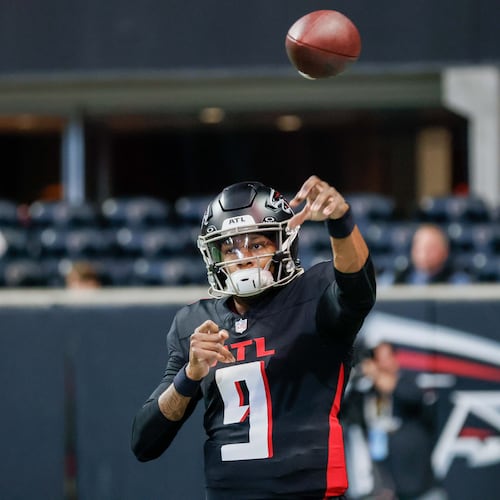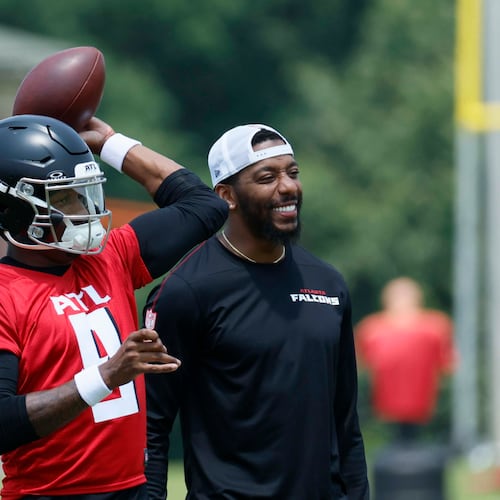The nation's most popular sport is back.
After a rambling and at times belligerent three-hour teleconference call, the NFL Players Association voted 32-0 to approve a comprehensive settlement agreement on Monday in Washington.
“Football is back and that’s the great news for everybody,” NFL commissioner Roger Goodell said in a statement.
By settling the labor dispute, the NFL avoided major financial setbacks that followed work stoppages in the National Basketball Association in 1988-89 and Major League Baseball in 1994-95.
“The NFL people started looking at the big picture and saying, ‘If we can’t come up with some solution, we’re going to lose the season and we might not have fans again for four or five years. We can afford to give up money right now, but can we afford to give up money three or four years down the road if fans don’t come back?'” said Thomas More Smith, an assistant finance professor at Emory University's Goizueta School of Business. “My answer was, no, they couldn’t.”
Now the players must recertify their union with a majority vote from the 1,900 players and return to the field. The Atlanta Falcons will vote and sign their union cards Wednesday at the team’s facilities in Flowery Branch. The first practice is set for Friday morning.
"I know it has been a very long process," NFLPA executive director DeMaurice Smith said in a statement. "But our guys stood together when nobody thought we would. And football is back because of it."
The vote ended the 4 ½-month lockout. The NFLPA’s executive board agreed to terms around 3 a.m. Monday. The player representatives were on a conference call that started at 11 a.m. Shortly after 1 p.m., the NFLPA announced the unanimous vote.
“We are happy now,” Falcons player representative Tyson Clabo said. “Everybody got what they wanted and that’s football.”
Falcons president Rich McKay, an attorney, was one of the league's key players throughout the negotiations. He spent major parts of the past four months in Washington, Minneapolis and St. Louis, helping with the rookie salary cap and the antitrust litigation.
The player representatives were thorough on the call.
“Everybody wanted to be heard,” Clabo said. “A lot of guys had a lot of questions. It got to be kind of tedious, but, for the most part, guys remained professional.”
The owners approved the deal last Thursday at a hotel near Hartsfield-Jackson International Airport. A second vote was not required.
After the owners gave their tentative approval, the players wanted to consider whether they wanted a clause that would allow them to opt out of the deal.
“An opt-out clause, in some guys’ opinion, limited the players’ ability to negotiate the maximum amount of revenue,” Clabo said. “So we would kind of be taking money out of our own pockets with an opt-out clause. If they can make more money without an opt-out clause, then we’ll make more money eventually.”
In 2008, the owners decided to opt out of the old collective bargaining agreement. The old agreement expired on March 11 and teams locked the players out. The players decertified the union and filed an antitrust lawsuit.
The timeline allows NFL teams to sign their latest draft picks and undrafted players on Tuesday. Teams can start negotiating with veteran free agents at 10 a.m. Tuesday, but can’t sign them until Friday at 6 p.m.
Both sides had to agree on how to split the more than $9 billion in annual league revenues. In the new deal, there will be a 53-47 split in favor of the owners. Under the old agreement, there was a 50-50 split.
Also, the salary cap will be reduced by almost $10 million this year. The cap is set at $120.375 million (salary and bonuses). The 2009 salary cap was $130 million. Last season was played without a salary cap.
A rookie salary system also was implemented and players can achieve unrestricted free-agent status after four seasons.
Once the union is recertified, the players can negotiate additional concerns about the league's personal conduct policy, the drug and steroid policy, and worker’s compensation issues.
“I’m sure there’ll be a push for some third-party arbitration [with the personal conduct policy],” Clabo said. “I don’t want to get into all of the issues going on there. There are concerns about the way the punishment has been handed out. I’m sure that will be an issue.”
About the Author
Keep Reading
The Latest
Featured



